Polish fans had to wait many years to get the nation's first individual world champion. And when it finally happened - in the eyes of 130,000 spectators in Katowice - it was certainly not the driver they had counted on who took the title after a dramatic turnaround against Ivan Mauger.
Here is the story of Jerzy Szczakiel.
By Ib Søby
The World Cup final in 1973 was given to the Polish Motor Union PZM, which had chosen the huge Slaski Stadium in the Katowice suburb of Chorzow as the place where the hopes of a Polish triumph would finally be fulfilled. It was the second time Poland had hosted Wroclaw in 1970, with Ivan Mauger taking the title ahead of the two Poles Pawel Walosek and Antonin Woryna.
Now it should be.
And the Polish chances were good on the home field, with a humming sea almost standing on the chairs in every single heat. First and foremost, Poland was well represented with a total of five drivers willing to help the one who looked the best.
The favorite among Polish fans was unconditionally Zenon Plech, but Pawel Walosek, Jan Mucha, Edward Jancarz and Szczakiel had also qualified for the final, while international bookmakers pointed to Ivan Mauger, Swedish Anders Michanek and even the injured Danish Ole Olsen. Olsen had crashed before in a British match in Sheffield, where he had leather his right shoulder.
But let's first just go back to 1949.
...
Three and a half years after the end of World War II, Jerzy Szczakiel came to the world. And it was certainly no dream world into which little Jerzy was born. Poland was crushed, raped and ripped, first by the Nazis and then by their "liberators" in the form of the Red Army, who avenged themselves fiercely in that area. which they - historically - perceived as German.
It's the same passion story, as always, when talking about Polish speedway in the post-war era. Poverty, desolate gray weather, pollution, empty shops, hunger and deprivation. But certainly also with a strong Catholic faith, a strong morality and psyche as well as a strong popular culture.
Jerzy grew up in Opole.
A beautiful old railway town with canals and bridges situated between Wroclaw and Katowice and intersected by the river Oder. In the Middle Ages, Opole was an important hub for growth and trade, but also a hub for numerous wars and political power struggles.
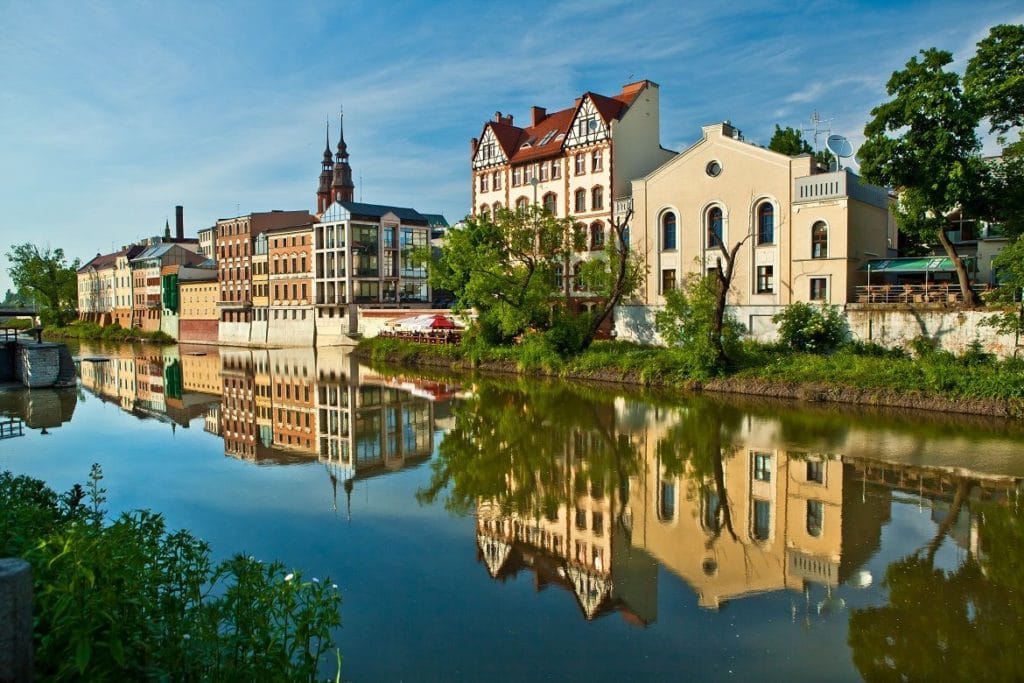
During the Iron Curtain of the 1950s and the Cold War, Opole was as impoverished as the rest of Poland, swamped by the suffocating regime of the Soviet Union.
And precisely the regime, the young Jerzy Szczakiel was not the biggest fan of. In later interviews, he did not hide the fact that he was far more Catholic than Communist.
This attitude came to have an impact on his speedway career.
After the war, Opole became of great importance to the Polish railway development, because the city became the center for the repair of locomotives, train cars and all the rolling stock needed to rebuild and develop train rails and all the infrastructure in southwestern Poland with the large urban communities such as Wroclaw , Katowice, Krakow and Czestochowa.
As early as 1945, the railway workers' union, Kolejarz, founded a sports club called ZZK Opole. Here football, rowing and canoeing were practiced, but from 1950 a motor sports department was also affiliated. Behind a number of large warehouses, a speedway lane was established. It was the railway workers who built the plant themselves in their spare time, and the inauguration took place with an exhibition run between two clubs from Wroclaw and Rybnik.
With interest in engineering and engines, Jerzy Szczakiel received an education at Opole's technical school. He joined ZZK Opole, like so many other young men in the city, and in 1967 he was licensed and debuted for the city's speedway club, now called Kolejarz Opole.
Jerzy Szcziakiel never got to run for other clubs.
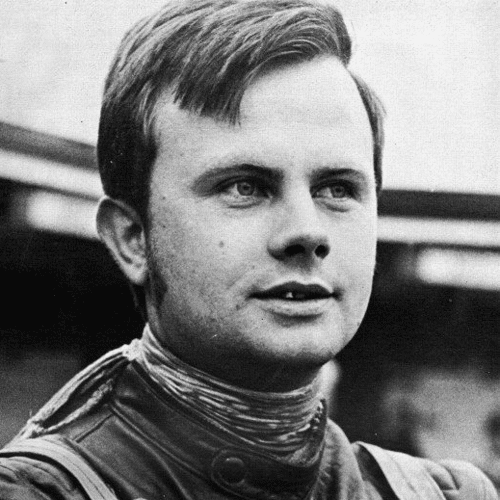
While performing his military service, Jerzy eventually emerged as one of the club's best riders, but from here there were still very far up to the profiles that marked the Polish speedway in the late 60s.
The Poles had known the speedway since the 1930s, but a league and annual individual championships were only really organized in the post-war era. Developments were slow due to poor equipment and repression thanks to the Soviet regime, which also hampered opportunities to enter international competitions.
But because Poland had far more motorcycles than cars these years, the speedway got a special tag in the crowd. Matches were played against clubs from other Eastern Bloc countries such as the Soviet Union, Hungary and Czechoslovakia.
Only in 1959 did a pole qualify for the World Cup finals. It was Mieczyslaw Polukard, who finished number 12 with five points at Wembley, with New Zealand Ronnie Moore becoming world champion.
But when FIM from 1960 introduced the team world championship, the Poles moved seriously into the international scene. Something that was greatly welcomed by the Soviet regime, which now regarded the speedway as an important tool for promoting the sporting qualities and strength of communism.
Poland won the World Cup in 1961, 1965, 1966 and 1969.
Individually, Polish drivers also did well in the World Cup context. Antonin Woryna won bronze in 1966 and 1970. Edward Jancarz also took bronze in 1968, while Pawel Walosek became Deputy World Champion in 1970.
In the shadow of these big names, Jerzy Szczakiel also began to achieve remarkable results. Together with Kolejarz Oplole, in 1969 he won the second best league series and moved up the top shelf in 1970, when the club reached bronze. It is the only league medal so far in the club's history.
Szczakiel had become number five at the individual Polish championship in 1969, and when he became number two in the national championship in Rybnik two years later, he was rewarded with the selection for the World Cup, which was run the following week on the same track.
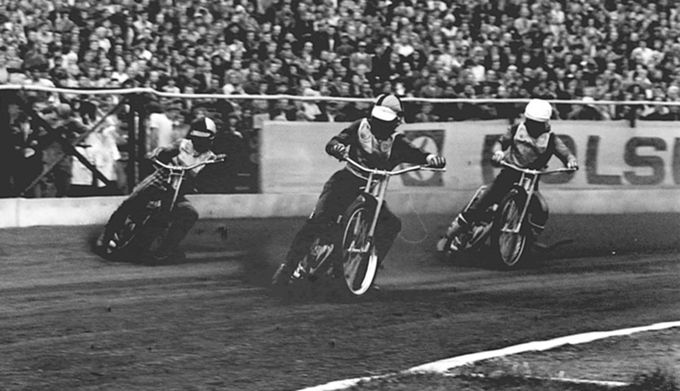
It came as a huge surprise to the now 22-year-old Szczakiel, because he was convinced that Woryna and triple team world champion Andrzej Wyglenda would be PZM's favorite. But he grabbed the chance and won the top pairing title with Wyglenda. Along the way, they beat New Zealand with Ivan Mauger and Barry Briggs and Sweden with Anders Michanek and Bernt Persson.
But despite the triumph, in Polish speedway there was quite a consensus that Szcziakiel had only been given the opportunity because PZM knew he was good in Rybnik.
In 1971, Szczakiel qualified for the World Cup final at Nya Ullevi - the one that Ole Olsen won - but scored O points in his five starts. Again, the Polish version of the Janteloven was clear in its judgment.
Szczakiel was not the man of the future in the Polish speedway.
While drivers like Edward Jancarz and the new super-talented Zenon Plech were allowed to travel the world to claim Polish speedway, Jerzy Szcziakiel often had problems with the Polish authorities who might doubt his communist spirit, and therefore refused him permission to leave several times. . For example, he was invited on a longer tour to Australia, New Zealand and the United States by Ivan Mauger and Barry Briggs. But the authorities banned Szcziakiel from experiencing this dream for any sportsman. He had to stay home nicely in the winter-hit Opole, while Jancarz and Plech gained access to several months of summer, sun and speedway.
...
The lack of international experience, of course, hampered Jerzy Szczakiel's career, and he was definitely not among the favorites for the World Cup final on Saturday, September 2, 1973 at home in Katowice. Of course, a group of Opole fans cheered on him, but the great Polish attention lay with his four countrymen; Jancarz, Plech, Walosek and Mucha.
However, Jerzy Szcziakiel made a disastrous appearance.
In his first heat he placed all opposition in the form of John Boulger, Peter Collins and Bernt Persson. In Jerzy's second heat, Mauger missed the start completely, waiting for Valeri Gordeev to come into place. The loss went up, Jerzy took the lead in front of Pawel Waloszek and they left Mauger to battle with Gordeev for the final point.
What was it now?
In his 3rd heat, Szczakiel was up against the countrymen Plech and Mucha and the Swedish Anders Michanek. But the Swede couldn't control the nerves and blew the tape. Thus, his World Cup smoke, while Szczakiel again surprised and surprised Plech and Mucha.
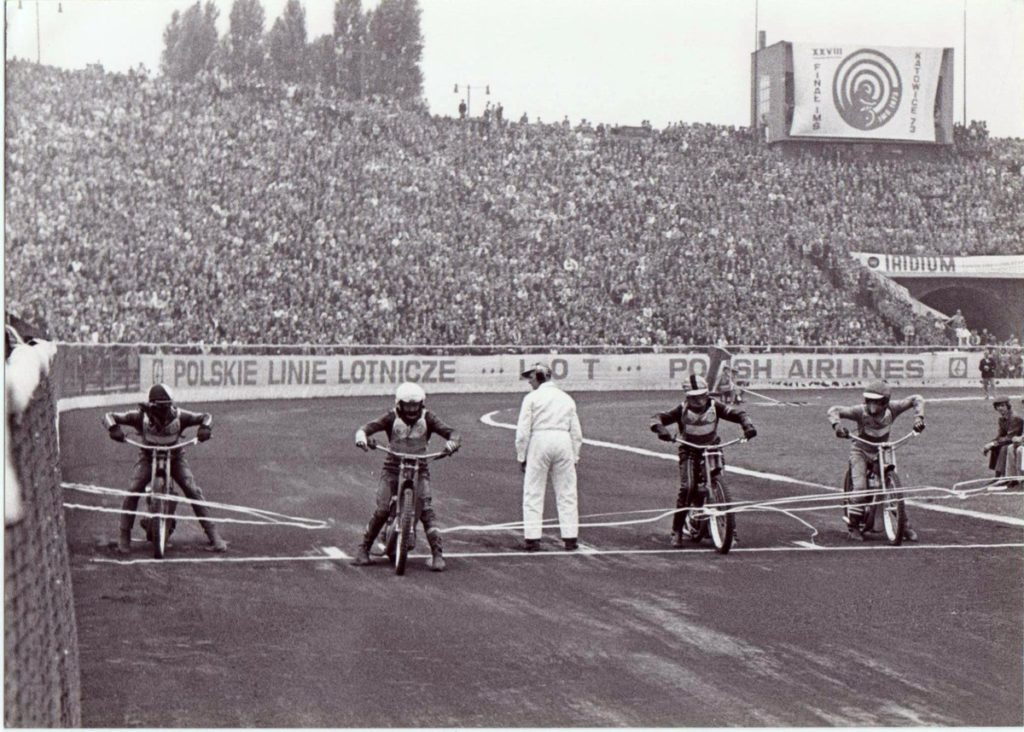
9 points after three starts.
The crowd at Slaski Stadium was watching the sensation.
Szczakiel also took the start in his 4th heat, but stretched a little too far towards the barrier and closed the Russian ace Grigory Khilnovski. Jerzy, however, maintained calm in second place, and had no opposition from Zelephsny and Ray Wilson.
Two new points were at home.
Last ordinary heat.
Here were Danish Ole Olsen, the Russian Paznikov and the last compatriot Jancarz. But Paznikov had long since played his part, and so had a nerve-racking Jancarz, who in a heat before had deliberately closed Zenon Plech past.
Olsen, with the shoulder injury, blew off his second heat victory and a fourth overall, while Szczakiel drove through to a safe second place. He knew it was enough for a detour against Ivan Mauger.
Mauger 13 and Szczakiel 13.
Zenon Plech had secured a bronze medal - no matter to him.
...
Now it was as if time stood still in Katowice while millions of Polish fans held their breath and jerked home in the living rooms in front of their televisions.
Most people considered the detour to be a case for Ivan Mauger.
A penalty kick.
But deep down, 24-year-old Szczakiel knew full well that he could beat the New Zealand legend. They had fought each other 12 times before this spectacular decision and it was 7-5 in Mauger's favor.
Many people forgot that fact that afternoon, but Mauger was fair enough and said it later:
– Listen up. Many people underestimated Jerzy, but I certainly didn't. I knew how fast he was - especially at home in Poland, and everyone who saw the Par World Cup finals in Rybnik in 1971 could not be doubted. He was fast and had nerves of steel.
As German Judge Georg Transpurger released the starting lap for the bypass, Ivan Mauger kept his pace, while Szczakiel slowly drifted back and forth doing something similar to a regular roll start. Szczakiel led at first, but Mauger settled high into the field and got closer and closer. In turn 3-4 on the second lap Mauger launched his attack, but Jerzy refused, so Mauger hit right into his bike. For a fraction of a second they hung together, but then Mauger fell, while Szczakiel continued.
Ivan Mauger was lying on the field, and while officials ran in to him, Szczakiel drove two lonely laps and was flagged in the finish.
The heat was not interrupted and the biggest sensation in World Cup history was a reality.
...
The cheer was great in many places in Poland.
But still, there was some skepticism with the nation's first individual world champion. Many thought it must have been one of the smart and flamboyant types like Plech or Jancarz rather than the quiet, shy and Catholic Jerzy Szcziakiel from the Opole provincial town.
The feelings were thus somewhat mixed, and at the World Cup final in London 14 days after, the newly beaten world champion came down to earth again. He made 0 points in five starts and was mocked by Western audiences who did not like a communist world champion. But it is also part of the story that Szczakiel had crashed a few days before the team final and probably should not have been selected for the Polish national team.
At the annual poll of the greatest sports performance in Poland in 1973, Sczcaciel's World Cup triumph was not enough. He ended up in 3rd place after two bike riders.
In 1974 he also got out of the individual World Cup qualification quite quickly, but was still on the national team grabbing the World Cup bronze.
Slowly, Jerzy Szczakiel disappeared from the limelight. He drove for the Opole railway club for a few more years and was still able to enjoy his status as Poland's first world champion in speedway.
In 1980, he crashed during a workout and quit his career.
...
Jerzy Szczakiel founded a family and became the father of three children while building a business as an importer of footwear.
But the sport still attracted him, and for a number of years he continued as a coach and manager in his old club. He also instituted awards and ran for young talent.
Today, 71-year-old Jerzy Szczakiel still lives in Oplole, and he likes to smile when he is regularly raised by the media.
Thus, he also got a roundabout name himself. Just outside the suburb of Grudzize is Rondo Szczakiel.
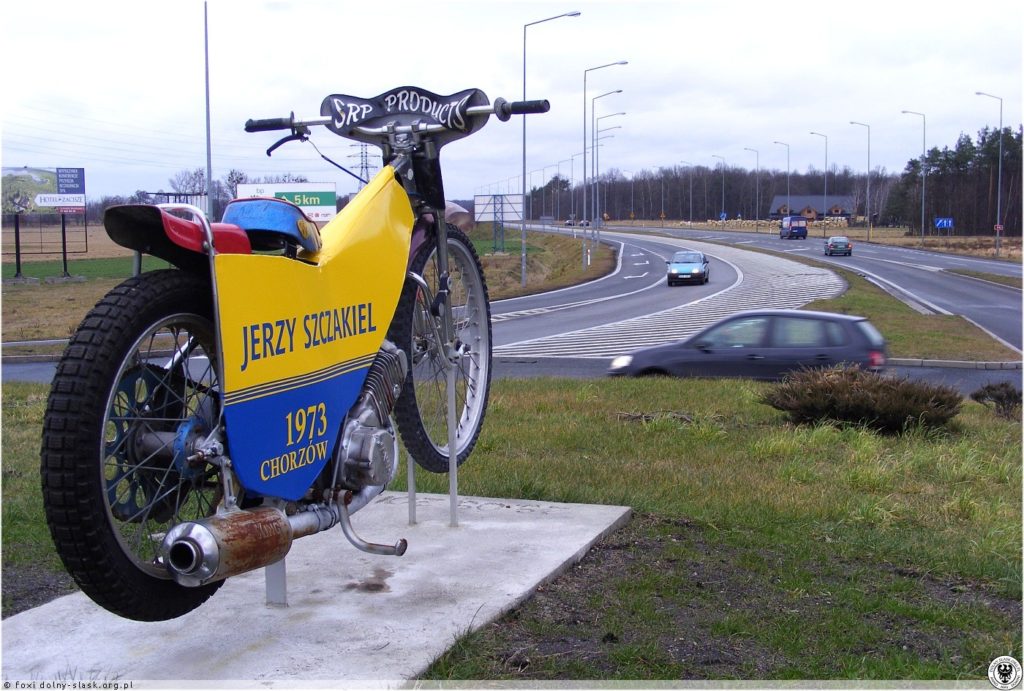
In recent years, Jerzy Szczakiel has also tried to make political career, both in local elections and in 2015 in the elections to the Polish parliament. However, neither election gave him enough votes for a seat.
But he is not a bitter man, on the contrary. In many Polish interviews, he expresses joy over his career, his wife and children. He also welcomed Tomasz Gollob's World Cup title in 2010 and Bartosz Zmarzliks in 2019, because in reality it was perhaps a difficult cross to bear, being his nation's only world champion.
At least when you became the master that no one had counted on and few had hoped for.
See the 1973 World Cup decision here:
